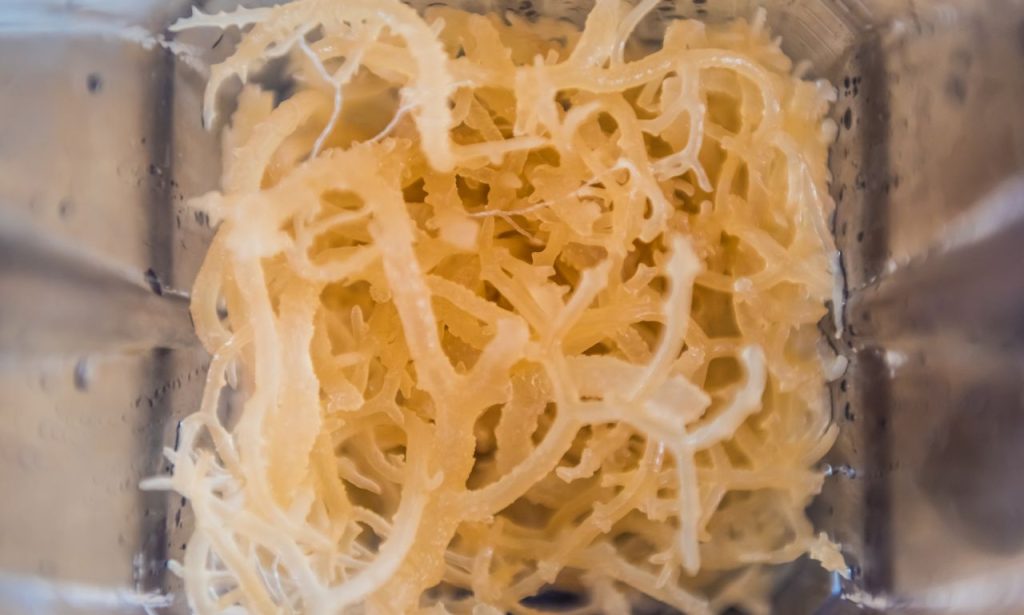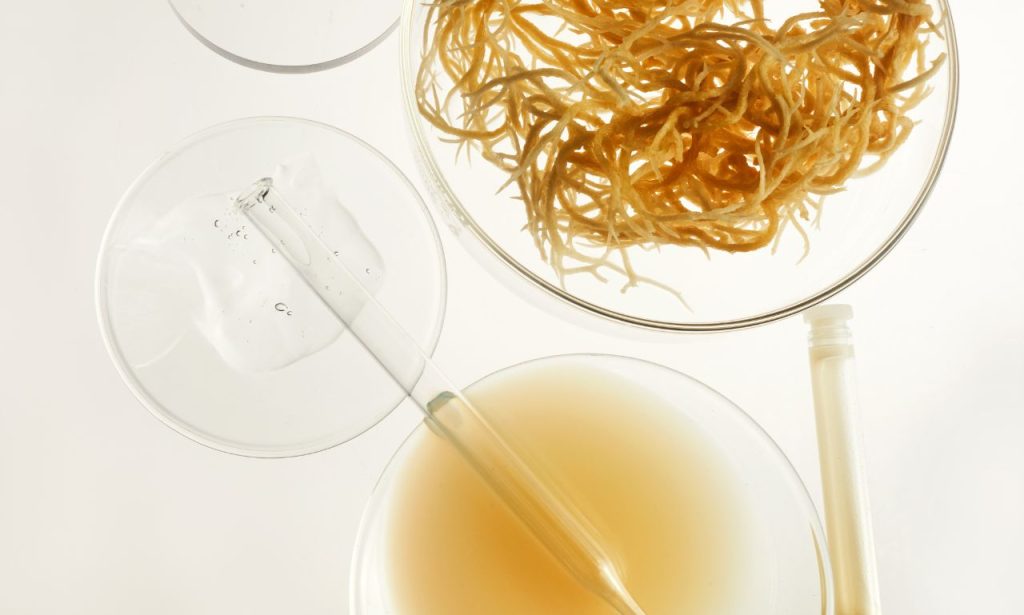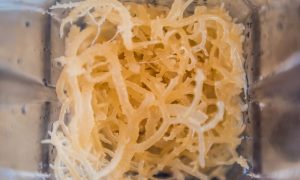In recent years, sea moss has surged in popularity as a superfood, praised for its myriad health benefits. But with this rise in popularity comes a question that many are eager to have answered: does sea moss keep you up at night? As you delve into this comprehensive guide, you’ll uncover the intricate relationship between sea moss and sleep, helping you make informed decisions about incorporating it into your diet.
What is Sea Moss?
Sea moss, also known as Irish moss, is a type of red algae found along the rocky coasts of the Atlantic Ocean. Traditionally used in Caribbean and Irish cuisine, sea moss has gained global recognition for its potential health benefits, ranging from improved digestion to enhanced immunity.
Nutritional Profile of Sea Moss

Sea moss is a powerhouse of nutrients, offering a wide range of vitamins, minerals, and other beneficial compounds. Below is a table showcasing its key nutrients:
| Nutrient | Quantity per 100g |
| Vitamin A | 118 IU |
| Vitamin C | 3 mg |
| Vitamin E | 0.87 mg |
| Vitamin K | 5.6 µg |
| Folate | 182 µg |
| Calcium | 70 mg |
| Iron | 9 mg |
| Magnesium | 144 mg |
| Zinc | 1.95 mg |
| Iodine | 600 µg |
Key Nutrients in Sea Moss
- Vitamin A: Essential for vision and immune function.
- Vitamin C: Vital for skin health and immune support.
- Vitamin E: Acts as an antioxidant, protecting cells from damage.
- Vitamin K: Important for blood clotting and bone health.
- Folate: Crucial for DNA synthesis and cell division.
- Calcium: Necessary for bone health and muscle function.
- Iron: Key for oxygen transport in the blood.
- Magnesium: Supports muscle and nerve function.
- Zinc: Important for immune function and wound healing.
- Iodine: Essential for thyroid function.
Active Compounds Contributing to Health Benefits
Sea moss contains several bioactive compounds that contribute to its health benefits. These include:
- Polysaccharides: Such as carrageenan, which have antiviral and anti-inflammatory properties.
- Phenolic compounds: Known for their antioxidant activities.
- Fatty acids: Including omega-3 and omega-6, which are crucial for heart health.
Health Benefits of Sea Moss
Support for Thyroid Function
Sea moss is rich in iodine, a mineral critical for the production of thyroid hormones. These hormones regulate metabolism, growth, and development. Consuming sea moss can help maintain optimal thyroid function, particularly for those with iodine deficiencies.
Gut Health Enhancement
The polysaccharides in sea moss act as prebiotics, feeding beneficial gut bacteria. This can improve digestion, reduce inflammation, and boost overall gut health, potentially alleviating issues like bloating and constipation.
Immune System Support
Vitamins A and C, along with zinc and the polysaccharides in sea moss, work synergistically to bolster the immune system. Regular consumption can enhance your body’s ability to fend off infections and illnesses.
Sea Moss Consumption and Sleep Patterns
Morning Consumption vs. Night Consumption
The timing of sea moss consumption can influence its effects on your body. Consuming sea moss in the morning may provide a boost of energy and nutrients to kickstart your day. Conversely, taking it at night could potentially affect your sleep quality, depending on individual responses.
Effects on Sleep Quality
So, does sea moss keep you up at night? The answer isn’t straightforward. While sea moss itself doesn’t contain stimulants, its high iodine content can influence thyroid function, which in turn affects your metabolism and energy levels. Some people might experience increased alertness, making it harder to fall asleep if consumed too close to bedtime.
Impact on Overall Wellness
Sea moss can contribute to overall wellness by providing essential nutrients that support various bodily functions. However, individual responses vary, and it’s important to monitor how your body reacts to sea moss, especially concerning your sleep patterns.
Potential Side Effects of Sea Moss
Common Side Effects
While sea moss is generally safe for consumption, some individuals may experience side effects such as:
- Digestive issues: Including bloating and diarrhea due to its high fiber content.
- Iodine overload: Excessive consumption can lead to thyroid dysfunction.
- Skin irritation: In rare cases, topical application may cause allergic reactions.
Interactions with Medications
Sea moss can interact with certain medications, particularly those affecting the thyroid. If you are on thyroid medication or other prescriptions, consult your healthcare provider before incorporating sea moss into your diet.
Who Should Avoid Sea Moss?
Specific Health Conditions
Individuals with the following conditions should exercise caution or avoid sea moss:
- Hyperthyroidism: Due to its high iodine content.
- Kidney issues: Excessive potassium in sea moss can be problematic.
- Autoimmune diseases: As it may stimulate the immune system, potentially exacerbating symptoms.
Allergies and Sensitivities
If you have known allergies to seafood or sea vegetables, it’s wise to avoid sea moss or conduct a patch test before consumption. Symptoms of an allergic reaction can include itching, swelling, and difficulty breathing.
How Does Sea Moss Make You Feel?

Sea moss, a nutrient-rich superfood, can make you feel rejuvenated and energized due to its high content of vitamins and minerals like iodine, magnesium, and vitamins A, C, and E. Many users report improved digestion, enhanced immune function, and better overall well-being. However, individual experiences may vary, and some might feel an increase in alertness or energy, potentially affecting sleep if consumed too close to bedtime. Always monitor your body’s response and consult with a healthcare provider for personalized advice.
Conclusion
In conclusion, sea moss is a nutrient-dense superfood with numerous health benefits. However, its impact on sleep varies among individuals. While it doesn’t inherently keep you up at night, its effects on thyroid function and metabolism might influence sleep patterns for some. Always consult with a healthcare professional before making significant changes to your diet, especially if you have pre-existing health conditions.
ALSO READ: Why Does My Baking Sheet Warp in the Oven?
FAQs
Yes, but it’s important to moderate your intake to avoid potential side effects such as iodine overload.
Consult a pediatrician before giving sea moss to children, as their nutritional needs and tolerances can differ from adults.
Store dried sea moss in a cool, dry place. If prepared into a gel, refrigerate and use within a few weeks.
Sea moss can support weight loss by improving digestion and metabolism, but it should be part of a balanced diet and healthy lifestyle.
Yes, other vegan sources of iodine include iodized salt, prunes, and certain fortified foods.




